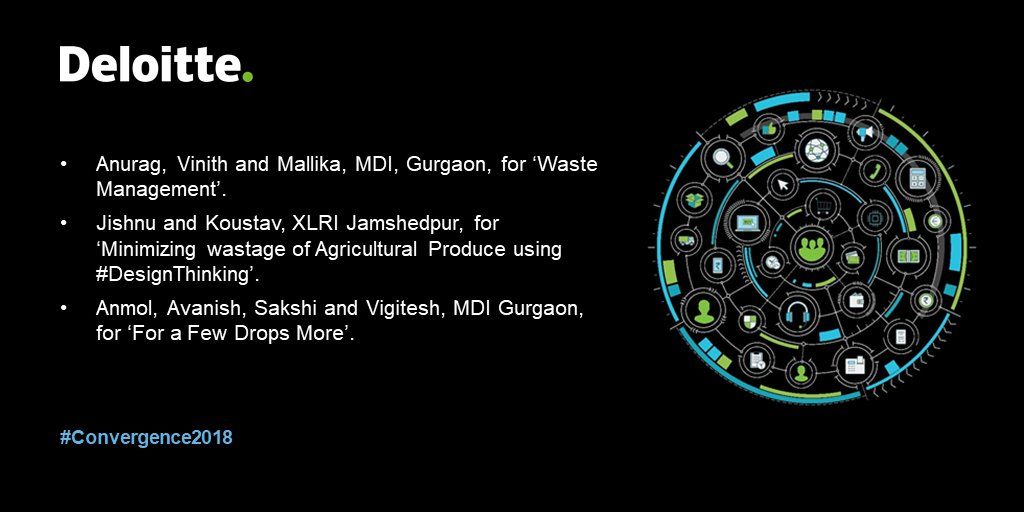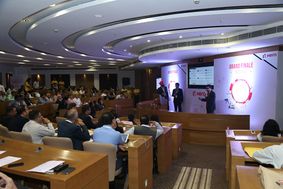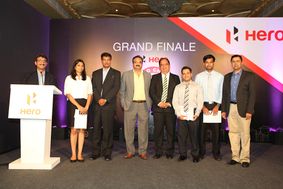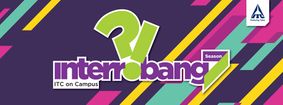Grow Beyond Better 2026
Deloitte Convergence 2018 National Winner MDI Gurgaon's Sakshi Mittal's Story

We brainstormed on the subject to get hold of different themes of design thinking applications. Then narrowed down our research to one subject- Water, and spent two weeks conducting secondary research on design thinking ideas on water. Finally, landed on our topic- Water synthesis, accessibility, and conservation.
The most challenging phase was coming up with our big idea- Application of design thinking with respect to water in the Indian landscape and presenting the same on one slider. Due to approaching exams, we were working till 5 AM in the morning on the final date.
Team dynamics were surprisingly very conducive, surprisingly because we were all working together for the first time. We divided our work and met frequently to catch up on our findings. Conflicts did arise but they were resolved based on mutual understanding and focusing on the bigger picture.
Each member brought a complementary skill to the table - presentation skills, research orientation, data-driven, and lastly, thoroughness and synergism. All these skills combined worked well for us. All members come from very different work experience backgrounds- semiconductors and electronics, consulting, data analytics, and solutions designing, which exposed us to different perspectives on the same subject.
Deloitte Convergence 2018 was more of an open competition; all teams had to make submissions at the national level and three winners would be chosen. The problem statement was only a single sentence. The organizers didn't provide any explanation, so it was open to interpretation. This added to the difficulty of the competition.
After submissions, Deloitte declared only the final results, on their web page. So, there was no transparency whatsoever on the criteria of judgement. Maybe some insight into the judgement process would help us better ourselves.
We learnt a myriad of things from Deloitte Convergence 2018. A team mix of complementary skill sets is a plus; 400% effort is needed to crack any competition- each member giving his 100%; thoroughness of research gives one a wider perspective on the scope of the project, and it is necessary to come up with one big main idea which makes your team stand out among all the submissions. These learnings will definitely prove to be useful for me in the future.
Login to continue reading
And access exclusive content, personalized recommendations, and career-boosting opportunities.
Don't have an account? Sign up















Comments
Add comment